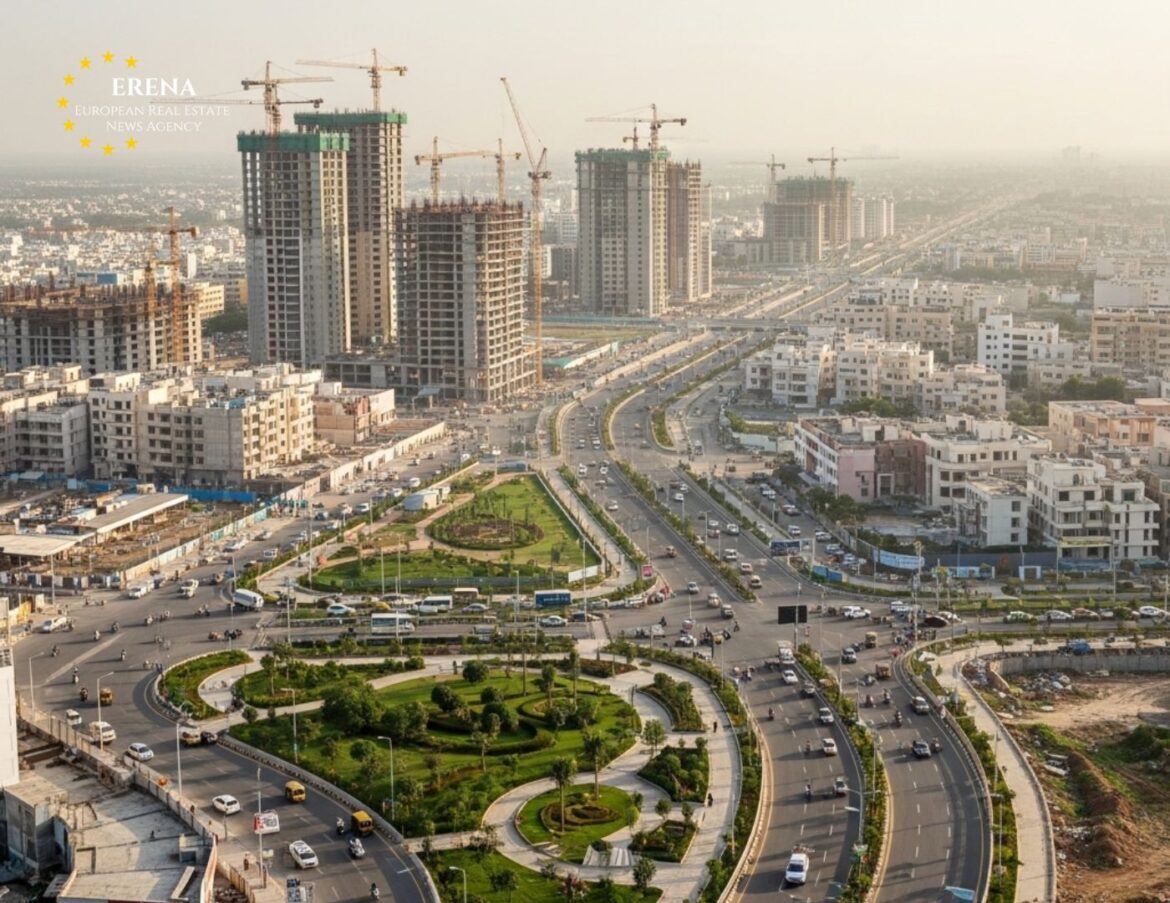The Indian state of Madhya Pradesh has announced an ambitious urban transformation initiative worth approximately €1.2 billion, aimed at revitalizing its cities through comprehensive infrastructure upgrades, improved public services, and sustainable housing developments. This strategic move underscores India’s broader push toward urban modernization and increased public-private cooperation in infrastructure investment.
Key Development Priorities and Goals
The core objective of this large-scale program is to transform urban areas across Madhya Pradesh into sustainable, livable, and economically vibrant centers. The initiative is structured around several key focus areas:
- Upgrading core urban infrastructure, including roads, bridges, and transport networks
- Modernizing water supply and sanitation systems to improve efficiency and quality
- Developing affordable housing and slum redevelopment under the national “Housing for All” scheme
- Implementing smart city solutions to enhance urban management
- Creating industrial and logistics clusters to attract private investment
Government officials emphasize that these projects will not only elevate the standard of living but also generate employment and attract domestic and international capital.
Funding Structure and Partnerships
Approximately 60% of the total funding will be sourced from state and municipal budgets, while the remaining 40% will come through private investment and public-private partnerships (PPP). Several global financial institutions have expressed interest in supporting these developments, including:
- European Investment Bank (EIB)
- Asian Infrastructure Investment Bank (AIIB)
- India’s National Investment and Infrastructure Fund (NIIF)
This blended financing model reduces the fiscal burden on the government and accelerates project implementation by leveraging private-sector expertise and efficiency.
Focus Cities and Project Highlights
More than 20 cities across Madhya Pradesh will benefit from the initiative, with significant investments targeted at major urban hubs such as Bhopal, Indore, Jabalpur, Gwalior, and Ujjain.
Bhopal
- Construction of a ring road and urban road network enhancements
- Deployment of smart lighting systems and surveillance infrastructure
- New wastewater treatment plants with a capacity of 100 million liters per day
Indore
- Expansion of the bus rapid transit system (BRTS) and redevelopment of transport terminals
- Smart traffic management systems
- Waste-to-energy plants and biogas infrastructure
Ujjain
- Restoration of historic landmarks and riverfronts
- Pedestrian-friendly zones for religious tourism
- Construction of tourist accommodation and supporting infrastructure
Jabalpur and Gwalior
- Modernization of electricity grids and rooftop solar panel installations on government buildings
- Digital integration of municipal services and online payment platforms
Sustainability and Environmental Impact
More than 20% of the project budget is earmarked for initiatives that promote environmental sustainability and reduce carbon emissions:
- Green public transport, including e-buses and EV charging infrastructure
- Rainwater harvesting and wastewater recycling
- Massive urban greening programs, with over 1 million new trees to be planted
- LED street lighting and energy-efficient building designs
Many of the new public buildings will seek international environmental certifications such as LEED or IGBC, setting benchmarks for sustainable urban growth.
Social Impact and Employment Generation
The government of Madhya Pradesh estimates that the projects will create over 150,000 jobs, both during construction and in long-term urban management roles. Special efforts are being made to ensure inclusion, with employment quotas for women and vulnerable communities, as well as skill development initiatives.
Slum redevelopment efforts will relocate families into new multi-story housing complexes equipped with essential infrastructure such as water, electricity, healthcare, and education facilities.
Technology and Smart City Integration
A major portion of the investment is focused on digital transformation and smart city solutions:
- Urban command and control centers for real-time monitoring and emergency response
- Adaptive street lighting based on traffic and weather conditions
- Air and water quality monitoring networks
- Unified digital platforms for public utilities, health, and transportation services
The state is also engaging Indian startups and international tech firms to co-develop open-source smart city technologies that can be replicated in other regions.
Global Interest and International Cooperation
Global institutions have praised the initiative for its integrated approach. Reports from the World Bank and UN-Habitat highlight Madhya Pradesh’s balance of sustainability, economic growth, and digital innovation.
European and East Asian companies have expressed interest in participating in tenders for engineering services, environmental solutions, and urban planning. Firms specializing in clean water systems, green construction, and intelligent mobility are especially active in the region.
Conclusion
Madhya Pradesh’s €1.2 billion urban development initiative marks a transformative chapter in the state’s modernization journey. With a focus on sustainability, inclusive growth, and cutting-edge technology, the projects aim to position the state as a model for future-ready urban ecosystems.
Key takeaways:
- Diversified investment across infrastructure, housing, environment, and digital services
- Significant job creation and socioeconomic upliftment through inclusive urban renewal
- Public-private partnership model ensures financial efficiency and timely execution
- Green and smart city priorities align with global sustainable development goals
As urbanization accelerates across India and the globe, Madhya Pradesh’s approach offers a replicable blueprint for other regions seeking to combine growth with resilience and livability.

